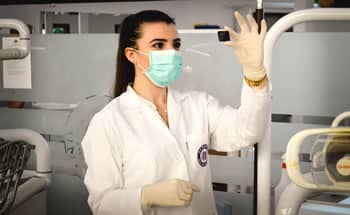
January 21, 2022, the Departments of State and Homeland Security announced new actions to advance predictability and clarity for pathways for international STEM scholars, students, researchers, and experts to contribute to innovation and job creation efforts across America in many sectors. These actions will allow international STEM talent to continue to make meaningful contributions to America’s scholarly, research and development, and innovation communities.
CONTEXT OF THE EXECUTIVE ORDER
A matter of Urgency
A report of by the committee on Stem education of the national science and technology council pointed out in 2018 that “
A diverse talent pool of Americans with strong STEM knowledge and skills prepared for the jobs of the future is essential to maintaining the national innovation base that supports key sectors of the economy, including agriculture, energy, healthcare, information and communications technologies, manufacturing, transportation, and defense, along with emerging areas like artificial intelligence and quantum information science. Since 2000, the number of degrees awarded in STEM fields has increased,21 but labor shortages persist in certain fields requiring STEM degrees, such as computer science, data science, electrical engineering, and software development.
www.energy.gov/sites/default/files/2019/05/f62/STEM-Education-Strategic-Plan-2018.pdf
The United States is home to leading higher education institutions, start-ups, Fortune 500 companies, and high-impact research. The skills gained through access to STEM programs in the U.S. are vital to improving our economy and society—scientific progress is directly tied to increased brain circulation that enhances collaboration among researchers domestically and globally.
Even if U.S. STEM degree holders experienced a 0.8% unemployment rate and an average wage of $87,570—more than double the national average, STEM graduates from US universities often return to their home country.
Over the last five years, international student enrollment at US schools and colleges has declined, in part because those students are choosing to study in other English-speaking countries like the UK and Canada—where a degree costs less, the path to becoming a citizen is clearer.
Their research shows that China has already passed the United States in the production of STEM [Science, Technology, Engineering and Mathematics] graduates at associate degree levels. At a bachelor's degree level it is also closing the gap rapidly. Because China's population is not enough qualified, international students are filling the gaps of stem available jobs.
The competition is harsh and this executive order will be a great incentive.
What is this " STEM legislation" about?
January 21, 2022, the Department of Homeland Security (DHS) announced 22 new fields of study have been added to the STEM Optional Practical Training (OPT) program to enhance the contributions of nonimmigrant students studying in the fields of science, technology, engineering, and mathematics (STEM), and support the growth of the U.S. economy and innovation.
Link :
https://www.dhs.gov/news/2022/01/21/dhs-expands-opportunities-us-stem-professionals
The text expands the list to include these 22 fields of study: bioenergy, general forestry, forest resources production and management, human-centered technology design, cloud computing, anthrozoology, climate science, earth systems science, economics and computer science, environmental geosciences, geobiology, geography and environmental studies, mathematical economics, mathematics and atmospheric and oceanic science, general data science, general data analytics, business analytics, data visualization, financial analytics ( not related with accounting profession) , other data analytics, industrial and organizational psychology, and social sciences, research methodology, and quantitative methods.
WHICH VISAS ARE IMPACTED ?
Effective immediately, the US’s Optional Practical Training programme (OPT) is expanding to allow more international students – in more STEM-related fields of study – to remain in the country for three years after graduation.
But there is more in the executive order. The aim of this order is also:
- Helping foreign entrepreneurs seeking to bring innovative concepts to market, while also increasing the number of Americans prepared to launch their own businesses;
- Advancing collaboration between American andforeign colleges, universities and other academic institutions.
- Expanding outreach efforts to ensure that all qualified United States workers have the opportunity to apply for STEM-relatedjobs in executive branch agencies.
1. STEM students
This notice may impact qualifying F-1 nonimmigrant students who seek a 24-month extension of post-completion OPT.
International students do not typically have a right to work in the U.S. after they finish their program of study, but the OPT program is one mechanism that allows them to do so in some cases.
What is OPT and STEM OPT?
OPT is one type of work permission available to certain F-1 nonimmigrant students (F-1 students earning bachelor's, master's, or doctoral degrees. It allows students (except those in English language training programs) to obtain real-world work experience directly related to their field of study.
The STEM OPT extension is a 24-month extension of OPT available to F-1 nonimmigrant students who have completed 12 months of OPT and received a degree in an approved STEM field of study as designated by the STEM list.
2. National interest waiver EB2
DHS is also updating and issuing new U.S. Citizenship and Immigration Services (USCIS) policy manual guidance. USCIS is updating guidance to clarify how certain STEM graduates and entrepreneurs can use the national interest waiver for employment-based immigrant visa classification as an advanced degree professional noncitizen or noncitizen of exceptional ability.
https://www.dhs.gov/news/2022/01/21/dhs-expands-opportunities-us-stem-professionals
An eb2 visa is a way of entering the United States for certain foreign nationals who have taken part in an occupation which requires exceptional ability or who are coming to perform services in a specialty occupation. It is part of the employment-based immigration track within the United States immigration system, and it is intended for those immigrating to the United States who have already begun work in an eb2 position.
https://travel.state.gov/content/travel/en/us-visas/immigrate/employment-based-immigrant-visas.html
Being beneficiary of a NIW (The National Interest Waiver) can be very beneficial for those seeking an EB2 green card because it allows for self- sponsorship instead of needing a US company to offer employment.
NIW is a type of employment-based second preference (EB2) visa and allows individuals with advanced degrees and exceptional ability to obtain permanent residence without having to labor certification (PERM).
Benefits of National Interest Waiver visa include the following:
- Immigrant visa priority is given, which means that applicants in this category can move ahead of other applicants, and generally receive their visas within six months or less.
- Balancing of Preferred Visa Categories: Applicants in other visa categories must wait in line, sometimes for years, for visa availability. This visa can help balance the visa backlogs of certain nationalities by reducing the number of people in the queue.
- Ability to change status while in the U.S. through USCIS Form I-539 (which allows visa applicants to change status without affecting their visa priority dates).
- No limit to the number of people who can come under this visa category (unlike employment-based visa categories, which are limited by annual caps).
- Ability to apply for a green card while in the U.S. on a non-immigrant visa (through "adjustment of status").
- Applicants do not have to meet PERM requirements, which are often time-consuming and costly.
3. Visas O1
O-1 nonimmigrant status is available to persons of extraordinary ability in the sciences, arts, business, education, and athletics, and persons with a record of extraordinary achievement in the motion picture or television (MPTV) industry.
In a recent change to its policy manual, the U.S. Citizenship and Immigration Services (USCIS) has shared new guidance on how it will “evaluate evidence to determine eligibility for O-1 nonimmigrants, particularly for individuals in science, technology, engineering, and math (STEM) fields.”
With this change in policy, USCIS now provides immigration attorneys and their clients with greater clarity on what evidence is required to prove eligibility for an O-1 visa. The new guidance allows attorneys to assess the chances of approval for prospective O-1 applicants more effectively, which can ultimately lead to streamlined processing times and approvals.
The USCIS has also offered a ‘practice tip’, suggesting that petitioners should submit documents relevant to the beneficiary's work, such as a letter from a government agency or employers.
Further, the USCIS has included a table in its guidance that lists various types of evidence that will satisfy each of the criteria for establishing that an O-1 beneficiary meets the standards for O-1A classification.
We expect more positive developments in this arena which will present opportunities for qualified foreign nationals.



